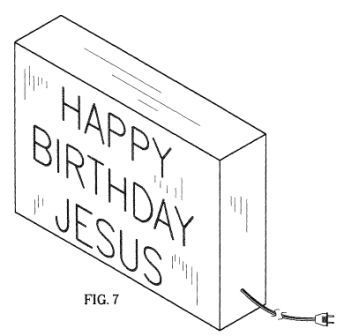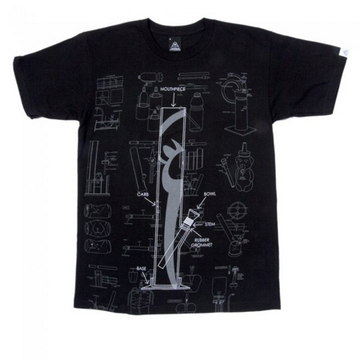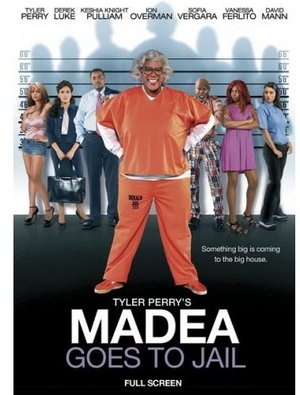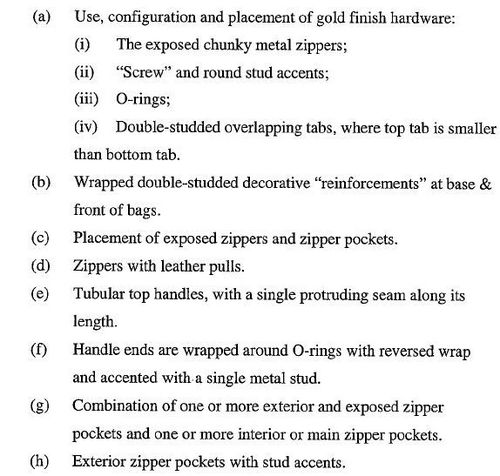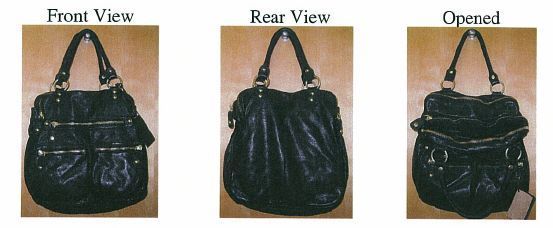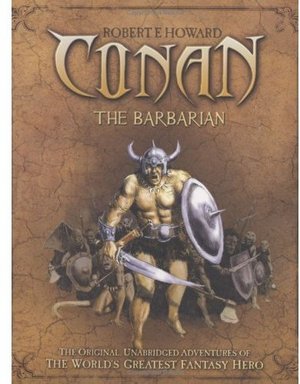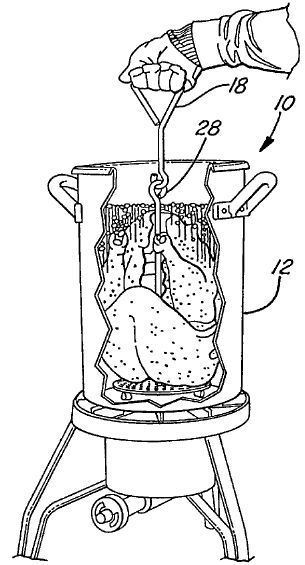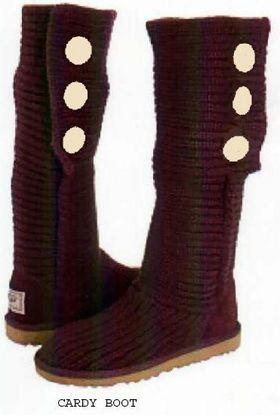 Los Angeles, CA – UGG® boot manufacturer, Deckers Outdoor, filed a patent infringement and unfair competition lawsuit against Claire’s Stores and CBI Distributing. UGG® boots have set a fashion trend with young ladies wearing the lamb-skinned boots – to keep their feet and calves warm – with shorts, thereby allowing their knees and thighs to freeze. That’s not in the complaint, it’s just a personal observation. Now back to the regularly scheduled complaint: the UGG® line of boots includes the Classic Cardy™, which was introduced in 2007 and has a crochet upper with buttons on the lateral side. The Classic Cardy™ boot is the subject of U.S. Design Patent No. D582,650 (“the ‘650 Patent”).
Los Angeles, CA – UGG® boot manufacturer, Deckers Outdoor, filed a patent infringement and unfair competition lawsuit against Claire’s Stores and CBI Distributing. UGG® boots have set a fashion trend with young ladies wearing the lamb-skinned boots – to keep their feet and calves warm – with shorts, thereby allowing their knees and thighs to freeze. That’s not in the complaint, it’s just a personal observation. Now back to the regularly scheduled complaint: the UGG® line of boots includes the Classic Cardy™, which was introduced in 2007 and has a crochet upper with buttons on the lateral side. The Classic Cardy™ boot is the subject of U.S. Design Patent No. D582,650 (“the ‘650 Patent”).
Deckers alleges that Defendants sell allegedly infringing boots under the “Claire’s Botts” mark at significantly lower price points, thereby diminishing the market place for the genuine Cardy Boots™. Plaintiff’s Lanham Act claim derives from the alleged sales of infringing boots creating a false association or affiliation with Deckers’ UGG® line of boots.
It’s unclear from the complaint whether Plaintiff is asserting a trade dress infringement claim, but at least they obtained a design patent for the boot – which is not a work protectable by copyright. By doing so, they avoid some costs and expenses in having to conduct surveys to establish trade dress rights and, further, a likelihood of confusion among consumers. The following Federal Circuit opinion provides a great comparison of the level of proof needed for each:
 Los Angeles Intellectual Property Trademark Attorney Blog
Los Angeles Intellectual Property Trademark Attorney Blog





